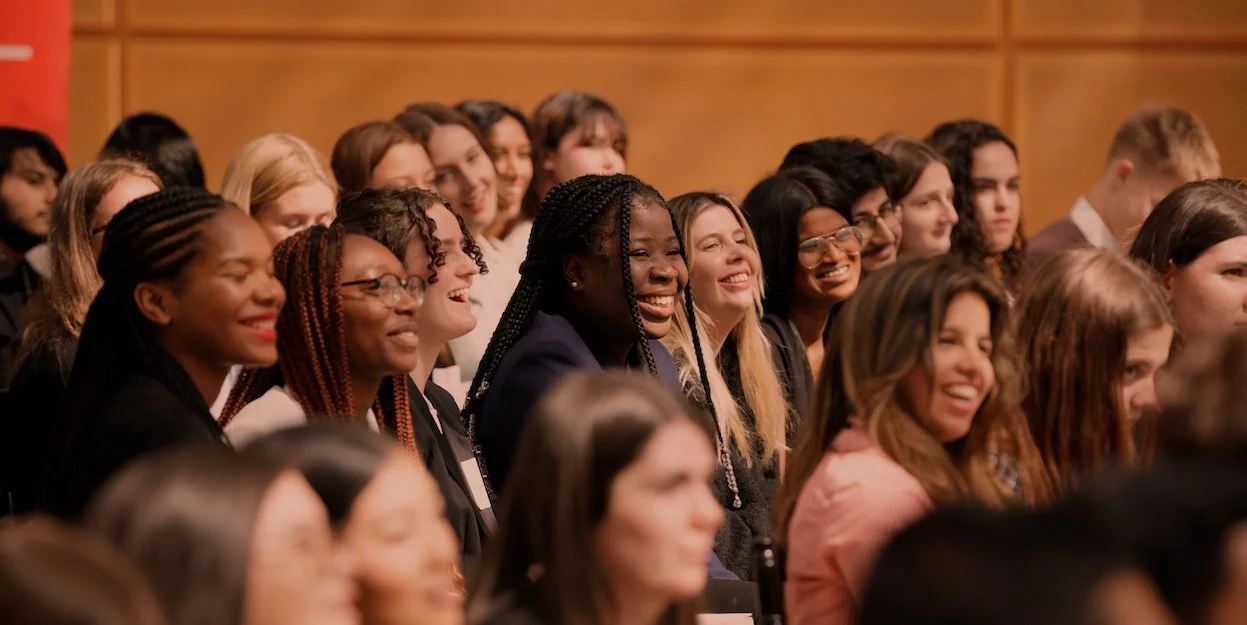What is a first-generation student?
Becoming a first-generation student can be a huge achievement. However, it does come with a unique set of challenges and opportunities, and it can be difficult to navigate these alone.
We hope that this post will support you through some of these challenges and signpost the best places to get help - if you need it.
What is a first-generation student?
First-generation students are university students whose parents or legal guardians did not attend university or complete a degree.
You can still be a first-generation student if your siblings or other relatives have graduated from university, though. This is because your identity as a first-generation student is based on your parents’ lack of university experience, not the experiences of your entire family.
Understanding this distinction is important because some schemes and programmes will be designed to support first-generation students as they transition into university life. You don’t want to miss out on these just because you don’t fully understand the criteria or what it means to be a ‘first-generation’ student.
What challenges do first-generation students face?
Limited knowledge
First-generation students often have a different perspective on higher education than their peers from families that have already completed higher education.
One of the biggest challenges they face is that they have limited knowledge about what university entails, how to apply, and what to expect when they turn up.
For example, first-generation students might know less about the application process. They might also be unaware that they can access financial support like scholarships, bursaries or student hardship funds to support them through their higher education.
This lack of knowledge can make attending university a daunting prospect for many students.
2. Increased pressure
It’s also common for first-generation students to feel extra pressure to succeed academically because further education presents an opportunity to break out of poverty or achieve a better life.
For many first-generation students in working-class families, an admission to university gives them the opportunity to climb the social ladder and become socially mobile. This pressure can bring a lot of stress, and in some cases, burnout.
3. Imposter syndrome
First-generation students may also experience feelings of imposter syndrome. They’re often left feeling like they don't belong because they aren't smart enough, or posh enough, to be in certain universities or on certain courses.
As a result, first-generation students may struggle to adjust to the new academic and social environments of college and feel disconnected from their peers who have had more exposure to higher education. This is something that our founder, Sophie Pender, shared her experiences of in her recent TedX Talk.
4. Financial difficulty
First-generation students often come from families with limited financial resources. This means that they find it harder to fund their university education.
In fact, Pew Research revealed that families where the parents have completed a bachelor’s degree have a substantially higher income than those who are first-generation students.
The government does offer maintenance and tuition fee loans to support low-income students in the UK throughout their studies. However, recent research by ONS revealed that this loan doesn’t not cover the living costs of 58% of respondents.
Where to find support as a first-generation student
Financial support schemes
First-generation students may be eligible for financial support throughout their studies. This financial support includes bursaries, scholarships, and student loans.
Some universities even offer scholarships specifically for first-generation students. For example, Cambridge university offers a scholarship for post-graduates who are first-generation students and have a strong academic record. Similarly, the BPP University offers a scholarship for first-generation students with exceptionally high grades.
It’s worth taking advantage of these schemes since they can enable first-generation students to study more comfortably and relieve some of the financial stress that many first-generation students encounter.
2. Find a mentor
First-generation students can benefit from having a mentor with experience of university. These don’t have to be mentors in a formal sense, they can simply be someone you know that’s already attended university and can provide guidance and support on what it’s like and how best to prepare.
Some schools will even invite alumni students back to discuss their experiences of university with current students. This is a great opportunity to ask any questions you have.
3. Student unions
Universities also offer various support services to their students. You can usually find this support in your university’s student union where you’re invited to access free and impartial advice about anything from academic performance to financial difficulties, housing and employment.
Some universities will allow walk-in appointments, others may need you to book in advance to speak to an advisor. Either way, these services provide a safe space to ask for advice and they usually signpost you to the right place if you need more specialised help.
4. Societies and communities
Joining a community of like-minded individuals is another great way to share experiences, network and receive support during your time at university. These communities can be national organisations, clubs, or even university societies.
The 93% Club is a great example of this. It’s the UK’s first and largest network of state-educated people, with a lot of our members being the first in their family to attend university.
We bring our diverse community of 10,000+ members together both in-person through our events, as well as online in our digital social network.
If you want to join a network of students that share your experiences and have a mission to make society more inclusive, apply to join us today.


